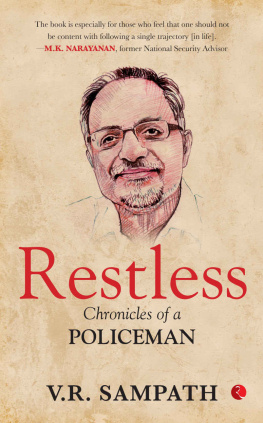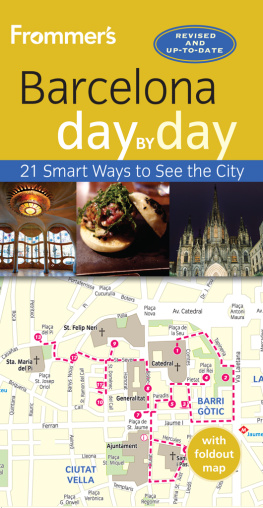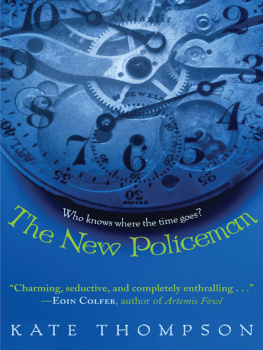Bernardo Atxaga
The Lone Woman
Irene is 37 years old and just out of prison after serving time for terrorist activities. Deciding to return home to Bilbao, she takes a bus journey across Spain, striking up conversations with the passengers who include two plainclothes policemen. As the journey progresses, so the tension builds.
BERNARDO ATXAGA, a Basque, was born in 1951. He published his first work at the age of twenty in an anthology of Basque writers. He has written plays, childrens books, radio scripts and novels, including Obabakoak, which has been published in fourteen languages including English, and won several prizes. His last novel, The Lone Man, was described by Peter Millar in The Times as a spellbinding, sympathetic odyssey into the mind of a former terrorist.
MARGARET JULL COSTA translated Obabakoak and The Lone Man. She is also translator of works by Javier Maras (including A Heart so White which won the Dublin International Impac Award), Carmen Martn Gaite and Arturo Prez-Reverte. Her translation of Fernando Pessoas The Book of Disquiet made her joint-winner of the Portuguese translation prize.
SHE WAS A woman of thirty-seven who had spent the last few years in prison. Slight and serious-looking, she was dressed neatly in clothes of a somewhat masculine cut; when she walked, she did so slowly, calmly; when she spoke, her voice was surprisingly husky; when she looked, her eyes seemed hard two brown spheres that time had polished to a sombre gleam. After her release from prison, she had spent a terrible night, wandering the bars of Barcelona, and ending up sleeping with a man she had only just met. Then, the following morning, after more bars and more walking, she had decided to return to the city where she was born, Bilbao. Forty minutes later, she was standing outside one of the sets of automatic doors at the railway station.
The door sensed her presence and trembled slightly, as if the two glass leaves were about to part at any moment, and then, acting instead as a mirror for she had stopped and was looking at herself it reflected her own figure back at her in precise detail: the leather suitcase she was holding with both hands, her black tights and black moccasins, her suede jacket with the red AIDS ribbon pinned to the lapel, her white shirt, her cropped hair. She kept looking herself up and down, like a woman who has just got dressed and is uncertain about her appearance.
Not bad, she said quietly, staring at her legs. After all those years inside, it was odd to see herself full-length. The mirrors in prison were rarely more than two feet high.
The door trembled again and two hefty young foreign women, carrying rucksacks taller than themselves, emerged from the station and occupied the space where her image had been. They took a couple more steps and stood before her.
Could you help me, please? asked one of them, unfurling what appeared to be a plan of the city as abruptly as if she were opening an umbrella. There was something vaguely insolent about her tone of voice, reminiscent of fifteen-year-old school-kids in TV sitcoms.
No, I cant, said the woman, without even looking at her. She was in no mood to start poring over the map of a city in which almost the only thing she knew was the prison. Besides, she despised tourists, especially tourists carrying rucksacks.
The abruptness of her reply startled the two young women, although, after the initial shock, their look of surprise became an exaggerated grimace. How could she treat them like that? Had she no manners? Why was she so aggressive?
You stink of sweat. Why dont you go and have a shower? thought the woman, shifting her suitcase to one hand and going in through the door. She didnt understand what the two foreign women shouted after her. The English she had learned in prison was good enough for her to be able to read and, to some extent, speak, but not enough to understand the insults of British or American tourists.
Once inside the building, she felt as if she were about to faint, as if her legs would give way beneath her if she continued walking towards the people milling about in the waiting rooms or by the ticket office. She hurriedly sought refuge in the area behind one of the shops, less crowded, emptier than the rest. Things were happening all around her, everywhere: a red light began to blink, a child bumped into the luggage cart and fell flat on its face on the floor, someone rushed past, their head turned to look back at the electronic departures board. And in moments of calm, when the general bustle died down, her eyes collided like the child who had fallen flat on his face with the glittering glass columns or the loud yellow or red plastic surfaces.
So, youre leaving us. Well, congratulations. I mean it. From now on, youll have all the electric light you want.
The inside of the station more than bore out the truth of those words addressed to her, just as she was about to leave prison, by Margarita, one of her cellmates. There were lights everywhere: in serried ranks across the ceiling and reflected on the paved floor, creating a brilliant atmosphere that affected everything in the building, from the magazines and books to the sweets in the sweetshop. It was in stark contrast to prison, of course, because there, in the cells and along the corridors, darkness predominated a kind of grey dust that filtered through the air and drowned the feeble glow from light bulbs and fluorescent tubes.
She looked restlessly about her, at the pizzeria to her left towards the rear, then over at the area full of coffee shops, but she couldnt see the information office. It wasnt where she remembered it, opposite the ticket office. As for the departures board which again was new to her Bilbao was not amongst the destinations of those trains about to leave.
She compressed her lips and gave an irritated sigh. The station clock a very sober, black and white Certina said it was twenty past two in the afternoon. According to her wrist-watch which was also a Certina, a mans watch it was two twenty-three. She regretted not having phoned the station that morning. She was used to the rigid prison timetable, to a life that passed, not like a river or a current in the sea, but like the little wheels in a clock, always turning on the same axis, never changing speed, so anything unusual, any uncertainty, made her feel uneasy. She must find out what her travel options were as soon as possible.
She picked up her suitcase again, this time in her left hand, and joined the group of passengers who were waiting in an area furnished with green plastic chairs. She spotted a young man in soldiers uniform, reading a sports paper. She went over to him and asked for his help. Could he tell her where she might find the timetables?
Why dont you ask the computer? the soldier said to her, pointing to a rectangular column. Halfway up the column was a window filled by a bright blue screen.
She put her suitcase down on the ground and struggled to follow the instructions. She could only get the machine to tell her about trains travelling to places near Barcelona or to cities like Paris, Zurich or Milan. She sighed again. This was beginning to get on her nerves.
Do you need any help?
The soldier had joined her at the computer. She told him that she couldnt find the timetable for trains to Bilbao.
There isnt a train until eleven oclock tonight, said the soldier, with a slightly flirtatious smile. When he saw the look of amazement on her face, his smile broadened and he spoke to her rather differently. Is that too late for you? he said. You could spend the rest of the day in Barcelona.
She wasnt in a hurry to get anywhere, not even to Bilbao, and she was on the point of accepting the invitation that lay behind the soldiers words. After all, it was the first invitation, albeit only half-spoken, tentative, that she had had in a long time, at least from anyone of the opposite sex, and she needed all the help she could to bolster her self-confidence; she needed to be looked at, spoken to, desired, as if she were a normal woman, not a whore the role she had passively undertaken on her first night out of prison. However, barely twenty-four hours had passed since she left prison, and still less, only about ten hours, since her encounter with the stranger with whom she had gone to bed in a cheap hotel, and she felt like being alone. She looked at the soldier and declined his offer. She couldnt stay in Barcelona, she had to get to Bilbao as soon as possible.












